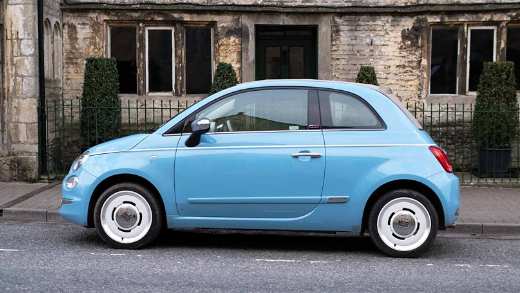Should I buy my teen a car?
If you decide you want to contribute to your teen’s newfound freedom on the roads, there are lots of questions to consider.

Even if you decide you want to contribute to your teen’s newfound freedom on the roads, there are lots of questions to consider. Will you go for a new or used car? Will they have their own insurance? Who'll pay for the running costs, like maintenance and petrol?
Before you agree to anything remember that keeping a car can be costly, even after you've shelled out for it.
Regular costs can include:
- Fuel
- Insurance
- Maintenance
- Repairs
- Tax
- Parking
If you're going to buy your teen a car, you’ll need to decide whether to get it new or used. Both have advantages – used cars may be cheaper upfront, but might require more frequent and expensive repairs. Either way, you may want to consider asking your teen to contribute funds, whether from their current job or from savings. That's what a piggy bank's for, right?
To help answer the other questions you might not have known you had, we spoke to experts about whether you should buy your teen a car:
Dr. Laura Markham, Peaceful Parent, Happy Kids
Driving a car is a huge responsibility, which makes it a valuable opportunity for growth for your teen. If you think your teen needs a car, talk with them about it. Tell them you will help them logistically and financially, but they need to develop a plan – to earn and save money, to get their licence, to get insurance, etc.
Once they come to you with a plan, help them flesh it out. For instance, how will they get the car checked out by a mechanic before buying it? What's the maintenance schedule? How will they afford fuel and repairs?
If you feel able to contribute financially, offer to do so. But the teen should pay for as much as possible of the car. If it's not a sacrifice on their part, if they don't work hard to be able to afford the car, then you can't expect them to understand the value of the car.
You'll also need to sign an agreement with your teen regarding safe driving. For instance, texting while driving is illegal, as is speeding. Your teen needs to agree to an app on their phone for at least the first three months, that'll monitor their driving speed and keep them from texting while driving. This could save their life and the lives of others, and will help them develop safe driving habits from the start.
Martin Smith, Aviva Motor Technical Claims Manager
For many, having the mobility of a car will be an essential part of their lives, be that for travelling to college, employment, or social interaction. Owning and insuring the vehicle will enable them to build a driving history and earn a No Claims discount, which will help reduce the cost of insurance as they get older and have more experience behind them. The cost of young driver insurance is high, though initiatives such as telematics monitoring systems can help in increasing affordability.
For those parents (or indeed the teens themselves) looking to buy a car, there are many factors to consider. There’s the cost of insurance, but also the price of the car and its mechanical reliability. Having breakdown protection is definitely worthwhile, as most vehicles are too complex for the average person to DIY fix at the roadside and emergency towing or repairs can be very expensive. For funding, do you save up your pennies, or use a financing model such as Personal Contract Hire (PCH) to get a new vehicle at an affordable monthly cost?
Don’t overlook safety when you choose a car. An older vehicle may be much cheaper to buy, but how will it fare in an accident? Vehicle design has advanced significantly to provide the driver and passengers with greater protection, meaning more collisions can be walked away from.
Whatever you do, don’t be tempted to gain cheaper insurance for your youngster by misrepresentation. When parents misrepresent who the main driver of a car really is, saying it’s them when it’s really their teenager, that’s called fronting – and it’s fraud.



